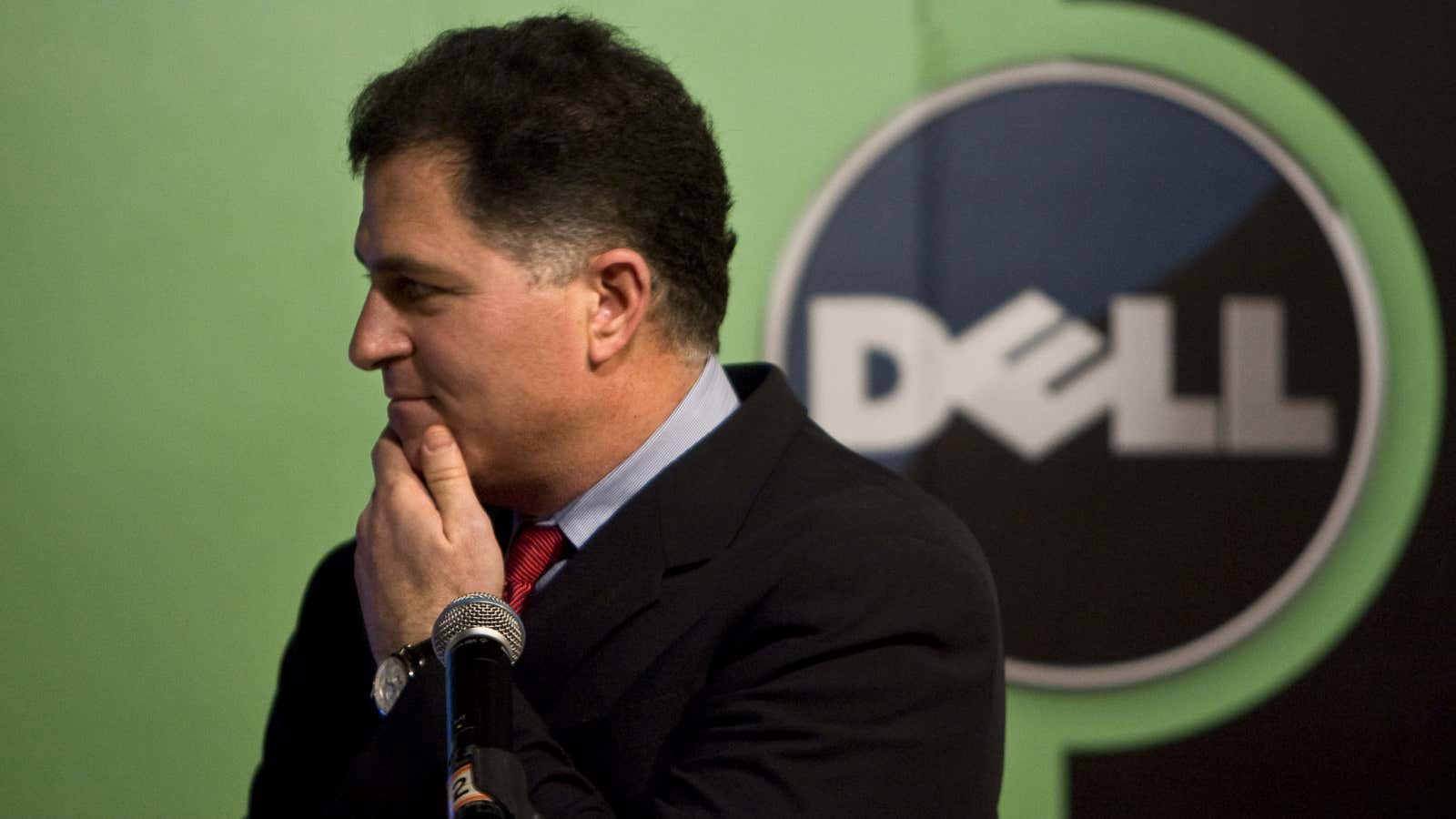Dell’s largest outside shareholder, Southeastern Asset Management, sent a letter to the company’s board of directors today complaining that the $13.65 buyout offer for Dell is “woefully inadequate.” It’s the most serious sign that Michael Dell, the CEO and the company’s largest shareholder, and other buyers private equity firm Silver Lake and Microsoft may not be able to get their deal across the finish line, at least in its current form.
Southeastern, which says it owns about 8.5% of Dell’s stock, said in the letter it will vote against the $24.4 billion deal announced earlier this week and asserted that Dell was worth about $10 per share more than the buyout price. The money manager also said it expects Dell to examine all alternatives to taking Dell private and reserves the right to use all options to oppose the transaction, including “a proxy fight and litigation claims.” These are fighting words from a firm with about $33 billion in assets under management that isn’t part of the usual roster of activist shareholders prone to issue such threats.
The news sent Dell’s stock up by 1.1% to the $13.60 range, as investors hoped the buyers would bump on price.
As Dell’s largest outside shareholder and the company’s second-biggest investor overall, Southeastern plays an important role in shaping opinion about the Dell buyout. Because Michael Dell is part of the buyout deal, he won’t be able to participate in the shareholder vote for the deal.
Even before the Dell deal was announced, people familiar with the matter said Southeastern was worried that Michael Dell was trying to steal the company. Other investors expressed similar concerns that it was a so-called sweetheart deal, but the smaller shareholders needed a big investor to rally around. That has now come in the form of Southeastern.
The buyers can either choose to wait it out and show investors that no other suitors are interested in Dell so they should just take the money and go on their merry way. Or, if it looks like shareholder opposition is building, the company and the buyers could increase the offer price or sweeten the deal for shareholders through a dividend or other incentive.
For Southeastern to have thrown down the gauntlet this soon after the deal was announced shows how strongly they feel about the inadequacy of the offer. With Southeastern out in front, other investors are likely to follow.
